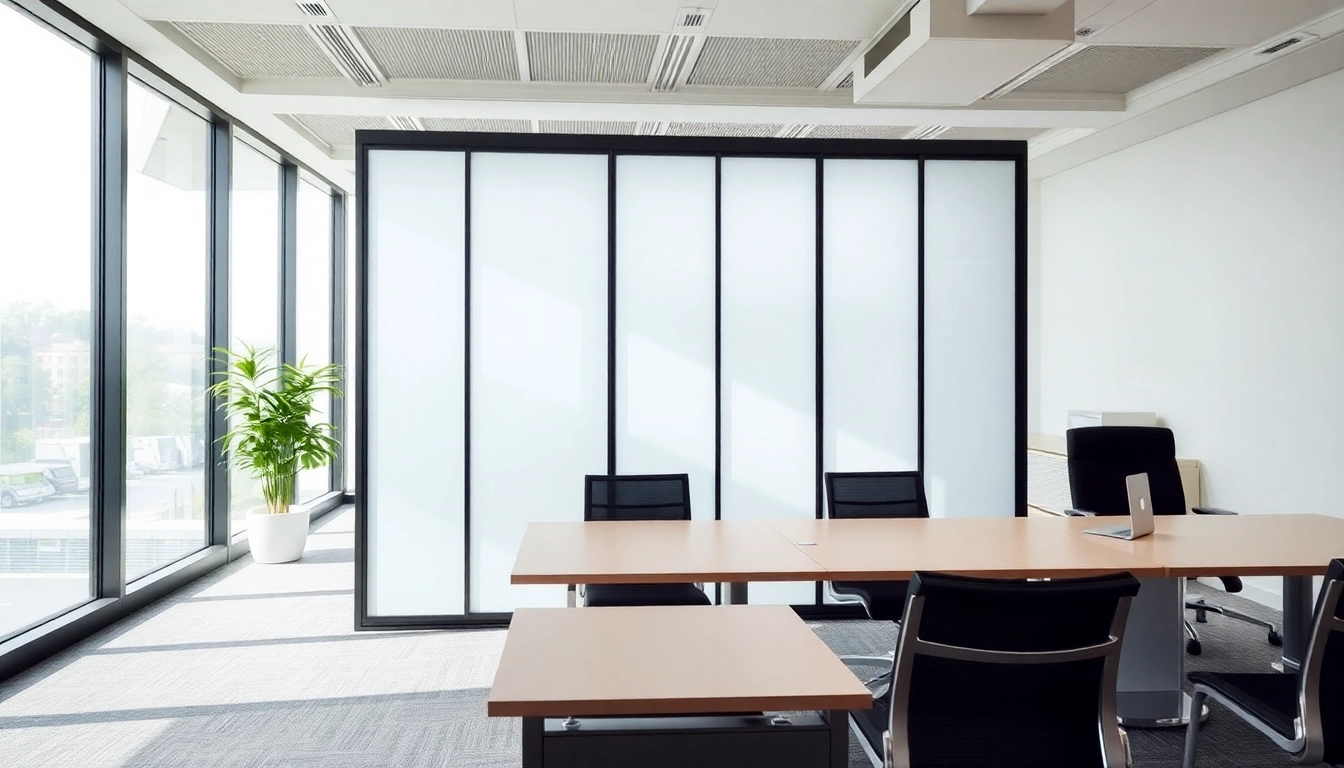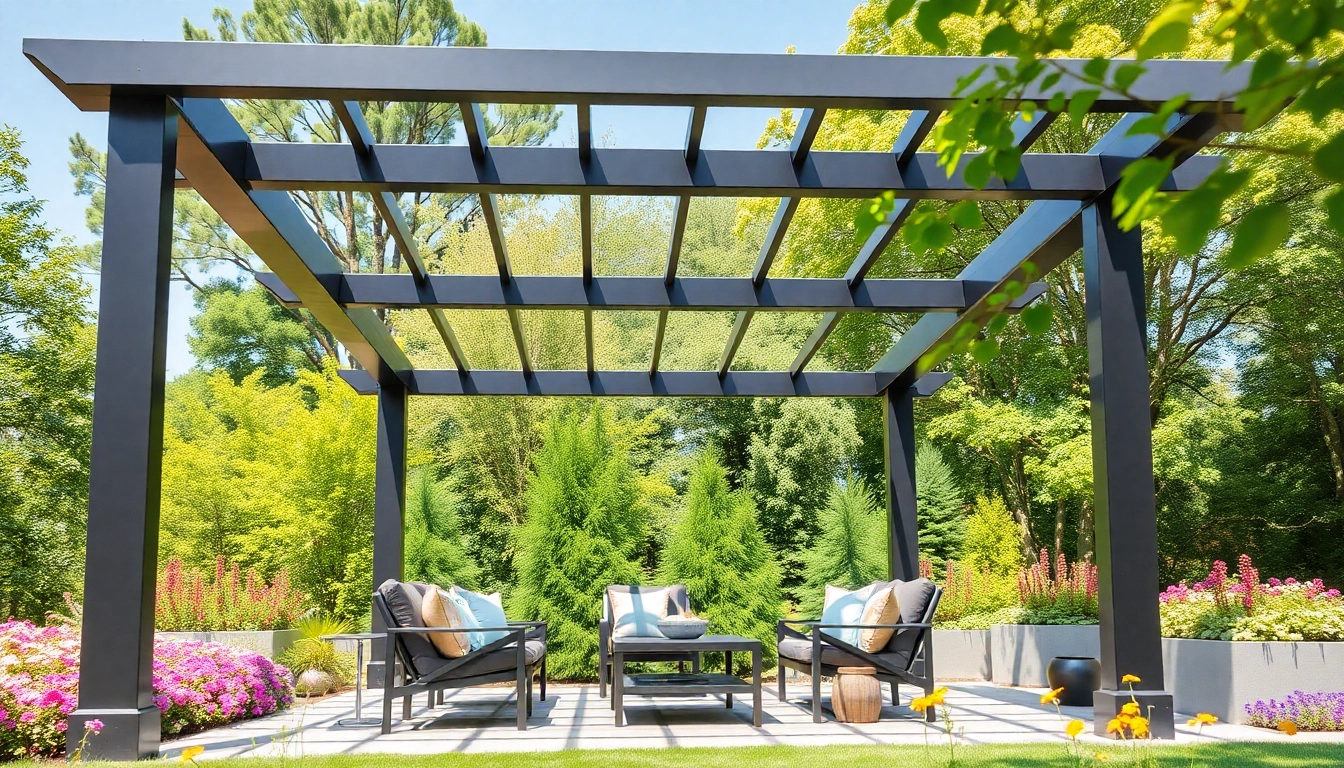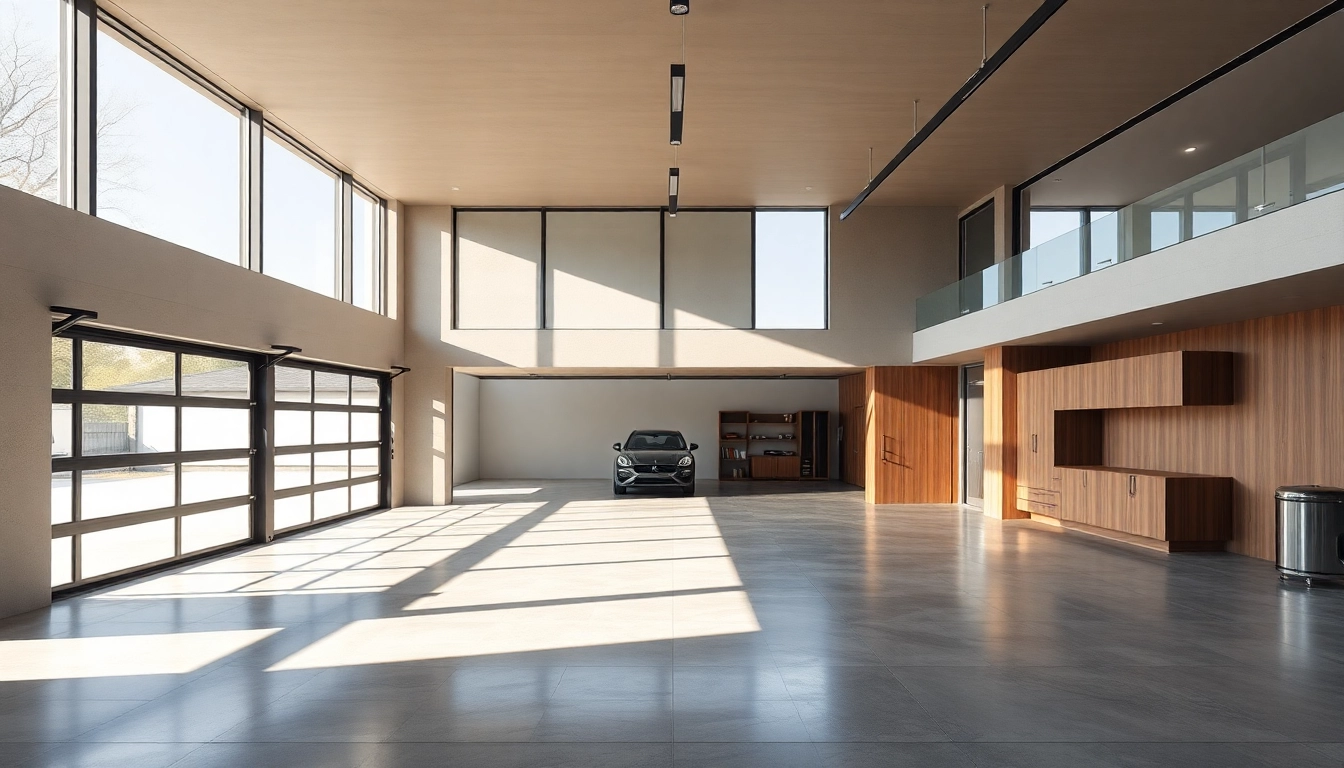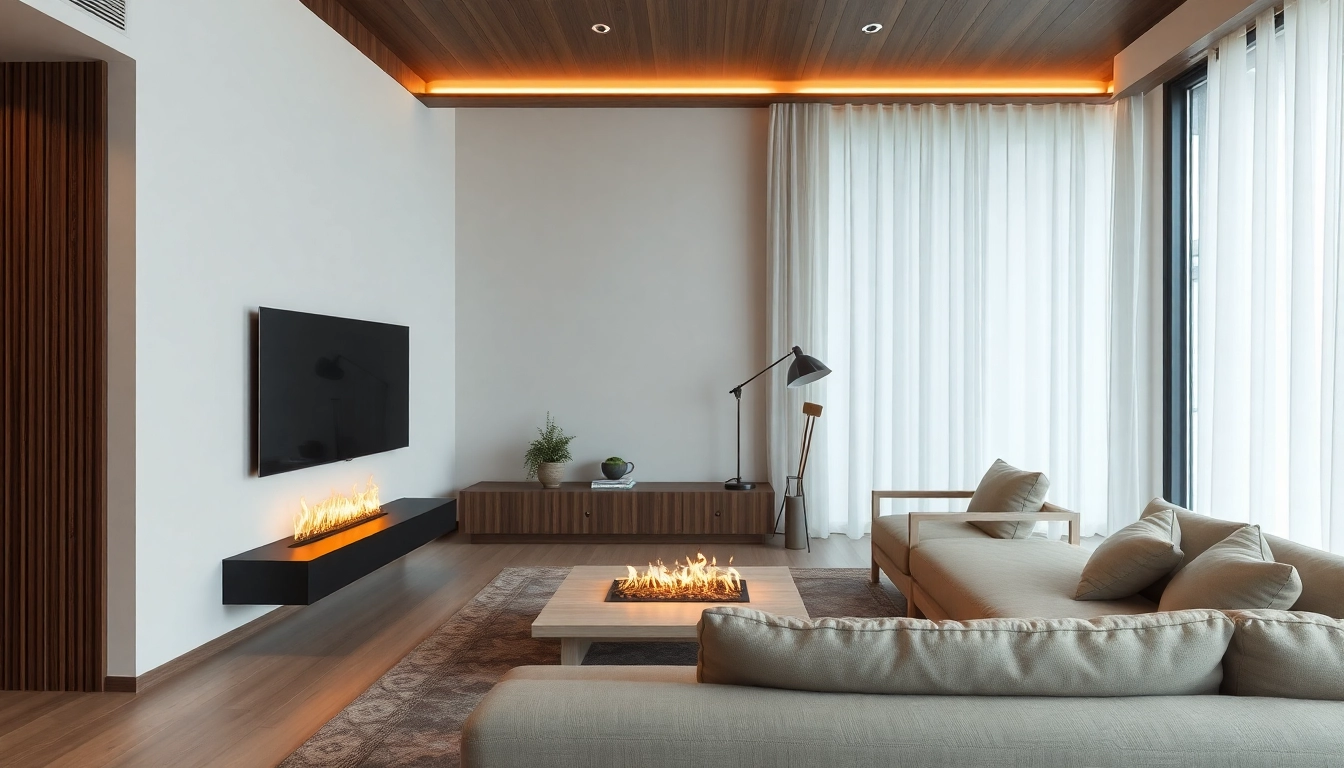Understanding Folding Partition Walls
What is a Folding Partition Wall?
A Folding Partition Wall is an innovative solution for creating flexible and versatile spaces within a larger area. These walls are designed to be easily opened and closed, allowing for the quick reconfiguration of rooms to suit various needs. Unlike traditional fixed walls, folding partition walls can be opened to create large, airy spaces or closed to form smaller, more intimate areas. They can be made from various materials, including fabric, glass, or solid panels, and often feature tracks mounted on the ceiling for smooth operation. This versatility makes them ideal for a wide range of applications, from offices and conference rooms to schools and event spaces.
Benefits of Using Folding Partition Walls
Folding partition walls offer numerous advantages to both commercial and residential applications. One of the primary benefits is flexibility. Users can easily adjust the layout of their spaces to accommodate different activities without the need for permanent construction. This adaptability also facilitates better space utilization, ensuring that every square foot serves its purpose effectively.
Another significant advantage is the cost-effectiveness in comparison to traditional construction. Instead of investing in permanent walls or divisions that may require costly permits and construction time, folding partitions provide a quick-to-install solution that can be relocated or adjusted as needed. In addition, the acoustic versions help mitigate noise between divided spaces, making them desirable for environments where privacy is essential.
Furthermore, these partitions contribute to energy efficiency. By creating smaller, manageable spaces, they can aid in better heating and cooling control, which can result in lower utility bills. Their aesthetic variety also allows users to choose designs and finishes that complement their interiors, adding to a professional appearance and overall ambiance.
Common Applications in Various Settings
Folding partition walls are versatile and can be deployed in many settings, including:
- Office Spaces: They can create breakout rooms, conference areas, or dual-purpose spaces within an open office layout, promoting collaboration and privacy when necessary.
- Educational Institutions: Schools often use folding partitions to create multipurpose rooms that can be adapted for different classes, events, or activities throughout the day.
- Hospitality: Hotels and event venues utilize folding partitions to manage their meeting and banquet hall spaces, allowing for easy adaptations based on booking needs.
- Healthcare: In hospitals and clinics, folding partitions can make it easier to set up temporary examination or treatment rooms, enhancing patient privacy and comfort.
Types of Folding Partition Walls Available
Acoustic vs. Non-Acoustic Folding Partition Walls
When selecting folding partition walls, understanding the difference between acoustic and non-acoustic options is crucial. Acoustic folding walls are designed to minimize noise transfer between spaces, making them suitable for environments where sound control is necessary, such as offices, schools, and hospitality venues. These walls often incorporate sound-absorbing materials and sealing mechanisms that enhance their effectiveness.
On the other hand, non-acoustic folding partitions may be suitable for less sound-sensitive areas. They offer flexibility and space division without specific attention to sound mitigation. Businesses or homes that require straightforward space management without the critical need for noise control might find these to be more cost-effective solutions.
Material Options for Durability and Style
The materials used in folding partition walls significantly influence their durability, appearance, and functionality. Some common material options include:
- Fabric: Offers a soft aesthetic and can be customized with various colors and patterns. It’s often used in environments requiring a softer touch, such as schools or community centers.
- Glass: Provides a contemporary look while offering visibility and natural light. Glass partitions are typically used in office spaces to maintain an open feel while providing privacy.
- Solid Panels: These partitions are often made of lightweight materials that are durable and can be used in high-traffic areas. Solid panels can also be designed to match existing decor.
Custom Solutions: Tailoring to Your Space
Many providers of folding partitions offer customizable solutions tailored to meet specific needs. Custom solutions can involve atypical sizes, finishes, or additional features like doors within the partition. Working with a professional partition manufacturer allows clients to create a space that aligns perfectly with their intended use, style preferences, and functionality requirements.
For instance, a multi-purpose conference room may require partitions of different heights or incorporate integrated technologies for presentations. Clients may also need to consider configurations that allow for quick setup and breakdown of the spaces that fold into the wall when not in use.
Installation and Maintenance Tips
Professional Installation vs. DIY
Installation of folding partition walls can often be handled either as a DIY project or by professionals, depending on the complexity of the system and the specific environment. For straightforward setups in residential spaces, many people opt for DIY installation, which can save costs while providing satisfaction in creating their desired layout.
However, in commercial settings or more complex installations, hiring professionals is advisable. Experts in the field will ensure the walls are installed correctly, preserving their function and durability. Additionally, they can assist with ensuring all safety standards are met, especially in public buildings.
Regular Maintenance for Longevity
To maximize the life of folding partition walls, regular maintenance is essential. This includes routine inspections for any wear and tear, ensuring tracks are clean and devoid of debris, and lubricating moving parts as needed. Users should test the mechanisms periodically to confirm they operate smoothly without obstruction. Should any issues arise, addressing them promptly can prevent more significant repairs down the line.
Troubleshooting Common Issues
Despite careful maintenance, users may encounter problems with their folding partitions. Common issues include sticking mechanisms, gaps between panels, or improper alignment. Here’s how to troubleshoot these issues:
- Sticking Mechanisms: If the partition doesn’t open or close smoothly, check for obstructions in the track. Cleaning or clearing debris often resolves the issue. If the problem persists, ensuring the wheels are lubricated can also help.
- Gaps Between Panels: This can occur if the panels are not aligned correctly. Ensuring that the initial installation was level and checking any adjustable components can rectify the situation.
- Panel Alignment: Over time, wear and shifting may cause panels to become misaligned. Regularly assessing and adjusting as needed will maintain the integrity of the visual barrier.
Cost Considerations for Folding Partitions
Initial Investment vs. Long-term Savings
Investment in folding partition walls can vary widely depending on materials, design, and custom features. However, evaluating the initial costs against potential long-term savings is crucial. While the upfront investment might seem significant, the flexibility and efficiency these walls bring to spaces can yield substantial savings in both operational costs and time management.
Organizations that utilize their space more effectively can often reduce costs associated with real estate, as they have the option to use smaller spaces or adjust their layouts more dynamically. Over time, the savings from energy and utility efficiency can also be a compelling argument for installation.
Factors Influencing Price
Several factors will influence the cost of folding partition walls, including:
- Material Choice: Higher-quality materials or specialized finishes will naturally increase costs.
- Size and Configuration: Larger partitions or those requiring unique configurations or additional features will typically incur higher prices.
- Professional Installation: Costs can vary based on the complexity of the installation and local labor rates.
- Acoustic Features: Soundproof options may cost more due to specialized construction.
Finding the Best Value for Your Budget
Finding the best value doesn’t always mean going for the cheapest option. It involves understanding your specific needs and how different partition wall solutions can fulfill those requirements. It’s advisable to obtain quotes from several suppliers and discuss your requirements with each to ensure that you are comparing similar products.
Moreover, it’s beneficial to ask for warranties or guarantees on partitions, as this can add additional value to your investment. Feedback from previous clients and reviews of suppliers can also provide insight into which products are likely to offer the best combination of quality and affordability.
Case Studies: Folding Partition Walls in Action
Successful Implementations in Offices
In corporate environments, folding partition walls have been instrumental in creating versatile workspaces. In a recent implementation at a tech company, folding partitions were used to transform open office space into distinct collaboration zones and quiet rooms. This allowed the company to enhance productivity while maintaining an open flow of communication.
The office layout facilitated changing teams and projects in a matter of minutes, enabling the creation of ad hoc meetings or brainstorming sessions without the permanent restructuring of space. Feedback from the staff indicated that this flexibility significantly improved morale and teamwork.
Transforming Educational Spaces
Schools have started to embrace folding partition walls to maximize their use of space. A notable case involved a high school that implemented folding partitions in their gymnasium, allowing the space to be segmented for different sports activities or events at the same time. This not only improved the scheduling efficiency of the facility but also allowed for shares of resources without conflict.
Teachers also reported improved class participation, as different smaller groups were able to conduct activities without distractions from other classes in the same area.
Innovative Use in Hospitality Settings
Folding partition walls have become extraordinarily popular in the hospitality industry for their ability to create flexible banquet or conference room spaces. In a recent case, a hotel used folding partitions to convert an expansive ballroom into multiple event spaces for a large convention. This allowed them to host multiple events simultaneously without compromising the quality of service.
The aesthetic appeal of glass partitions added to the venue’s opulence, and guests appreciated the seamless transitions between spaces. Furthermore, the hotel reported increased bookings as they could cater to a wider range of needs efficiently.



